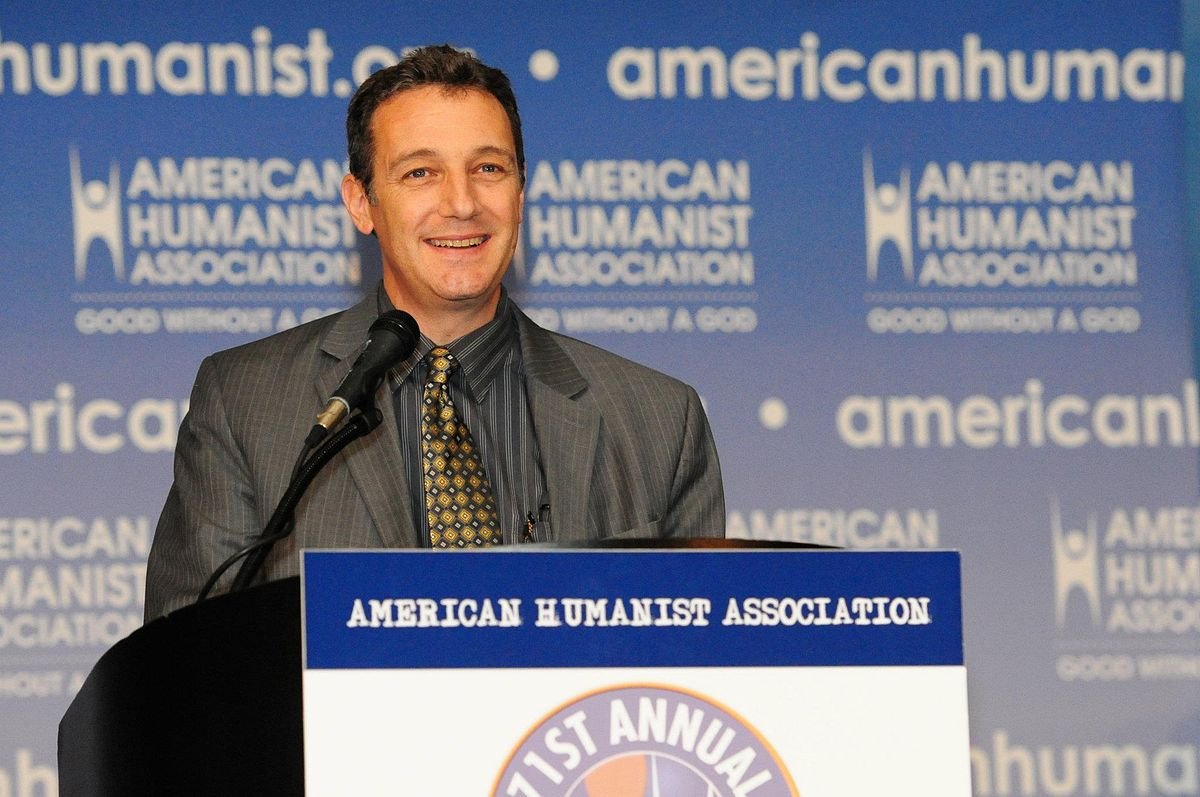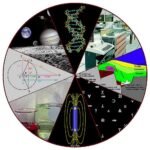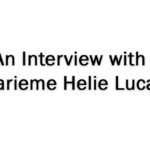David Niose is an attorney who has served as president of two Washington-based humanist advocacy groups, the American Humanist Association (AHA) and the Secular Coalition for America. He is author of Nonbeliever Nation: The Rise of Secular Americans and Fighting Back the Right: Reclaiming America from the Attack on Reason. He currently serves as legal director of the AHA.
Scott Douglas Jacobsen: How did you become involved in humanism? Was there a family background?
No, there was no family background in humanism. I come from a Catholic family who were Italian and Irish. There were some family members who were not very religious, but none who were openly atheist or secular humanist. I’ve been nonreligious my entire adult life, but I didn’t get involved in organised humanism until shortly after George W. Bush was elected in 2000. At that point, I realised that the religious right was not going away, and I saw organised humanism as a means of fighting back.
You are the legal director for the Appignani Humanist Legal Center of the American Humanist Association. What tasks and responsibilities come with being the legal director?
I oversee the AHLC’s activities, from its litigation efforts to its complaint letters and other activities. Our legal centre is contacted daily by people who feel that constitutional violations are occurring in their communities. We answer their questions and give them the help they need. We have about a dozen cases in suit right now in courts around the country, at various stages of litigation. Some cases that are at the appellate level, some that are fairly new and going through the discovery process, and others that are nearing trial.
What differentiates legal cases and issues for the Appignani Humanist Legal Center of the American Humanist Association community and representatives from the more standard general American public legal cases—themes, media attention, individuals and organisations involved in them, and so on?
Our cases are mostly Establishment Clause cases – litigation suing governmental entities for violating church-state separation principles. Sometimes other issues are also present, such as equal protection and free speech, but the vast majority of our work is Establishment Clause. We have had cases against legislative bodies, school districts, county commissioners, the federal government—all kinds of governmental entities that have violated the wall of separation.
What are some of the main campaigns and initiatives of the Appignani Humanist Legal Center of the American Humanist Association?
We’ve had many high-profile legal disputes. We successfully persuaded the Air Force to allow an airman to re-enlist without including “so help me God” in his oath, reversing its policy requiring that wording. We’ve also successfully sued the federal government on behalf of a Humanist inmate who was not allowed to form a Humanist group in his prison. We’ve challenged “under God” in the Pledge of Allegiance in a couple of different jurisdictions, using an equal protection approach instead of the Establishment Clause. And of course, we’ve successfully challenged various religious activities in schools all over the country.
Also, what is the Pledge Boycott?
The Pledge Boycott is an effort to encourage people, especially public school students, to opt out of the Pledge of Allegiance in protest of the inclusion of the words “under God.” Those two words were added in 1954, and since then the pledge has defined patriotism in theistic terms for several generations of schoolchildren. Many people don’t even know that the pledge was once secular, that only lobbying by religious groups changed the wording. The boycott is a way of raising awareness and calling attention to the discriminatory, anti-atheist wording.
What is the Secular Legal Society? How does this society help bring everyone together under one banner and unify legal efforts on behalf of the American Humanist Association?
The SLS is our group of cooperating lawyers from all over the country who make themselves available as a resource to help the Appignani Humanist Legal Center. We currently have over 180 lawyers on our SLS list, from all different kinds of legal specialities. These people are available to help us to the extent they can. Some serve as local counsel when we litigate cases around the country. Others offer casual advice when we reach out with questions about issues that are outside our usual scope of practice – immigration law, for example, or intellectual property. The SLS is a valuable resource, and it’s a great way for lawyers who care about the AHA and secularism to lend a hand.
In general, what are the perennial legal threats to the advocacy and practice of humanism in the United States?
Well, almost all the activities of the Christian right in America threaten humanist values in one way or another. Whether its reproductive rights, social justice, prayer in schools—the list goes on and on—all of these issues run contrary to the direction we want to see this country take. It’s disheartening that, in 2017, we have school districts that won’t teach evolution, we have parts of the country where women can’t get safe and affordable reproductive health care because religious activists are in control.
What is the scope and scale of the of the Appignani Humanist Legal Center? Who are some of its most unexpected allies?
As far as scope goes, we are ready to advocate anywhere in the country, thanks to our SLS attorneys and our nationwide network of AHA members and chapters. We have eyes and ears all over the country.
With the current Trump Administration, do you see new threats to the fundamental rights and dignity of humanist American citizens?
Sure. It’s no secret that Trump panders to the Christian right. We’ll probably see many conservative judges appointed, jurists who disagree with our interpretation of the Establishment Clause. Very difficult days could be ahead for church-state separation.
What have been the largest activist and educational initiatives provided by Appignani Humanist Legal Center, if any—if that’s part of its work at all? Out of these, what have been honest failures and successes?
Well, I would categorise all our activities, including our litigation, as activism. The Pledge Boycott, which is an AHA initiative supported by the AHLC, has been a big success. And we’ve had many church-state victories, in courts and via complaint letters. If I had to point to a disappointment, I would say it would be the aforementioned equal protection pledge litigation. We brought an innovative and valid legal theory before courts in two fairly liberal states, Massachusetts and New Jersey, but neither court would accept our argument.
How can people get involved with the Appignani Humanist Legal Center of the American Humanist Association, even donate to them?
We are not hard to find. The AHA’s web site is www.americanhumanist.org. The AHA also has over 600,000 Facebook followers, and you can connect with us there as well. The AHLC’s web site is www.humanistlegalcenter.org. Many of the AHLC’s activities are posted on the AHA’s Facebook page as well. Donations can be made via those links also.
Any closing thoughts or feelings based on the discussion today?
I’d just want to encourage anyone who thinks a church-state violation is occurring in their community to contact us. It can be a lonely feeling to be a secular person or family in a religious town in the Bible belt, but oftentimes those who speak out discover that they are not alone. And the AHA is your link to the community of reason, no matter where you live.
Thank you for your time, David.
Thank you.








Article Discussion